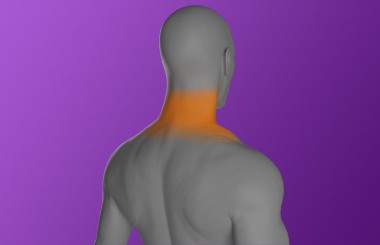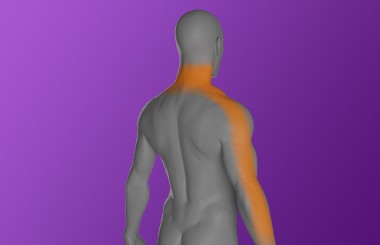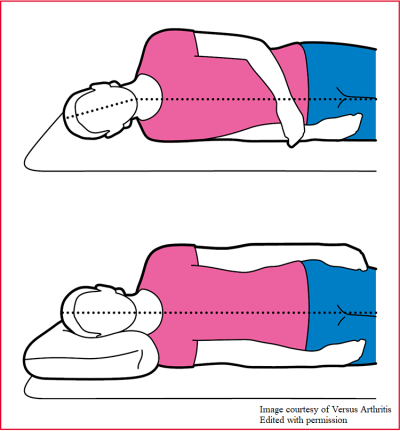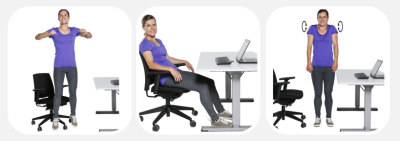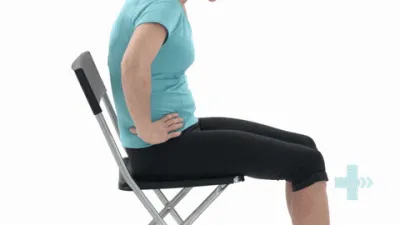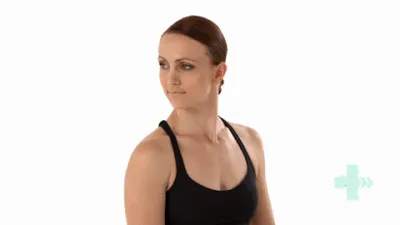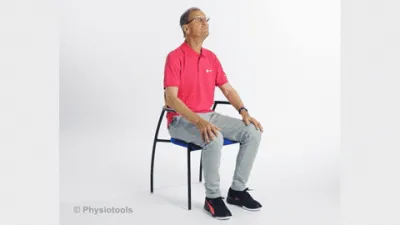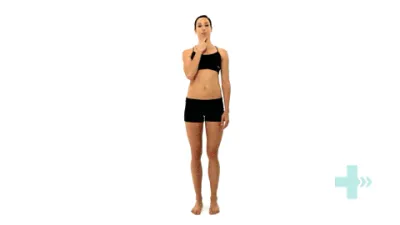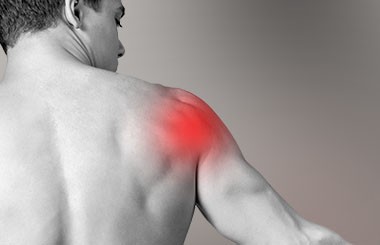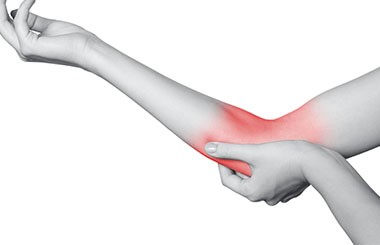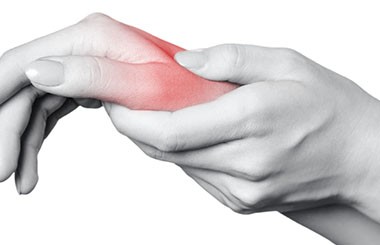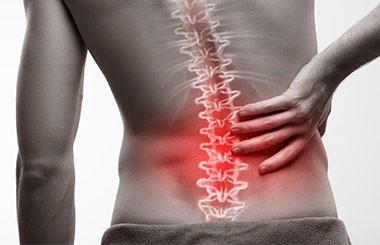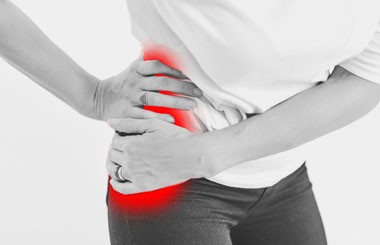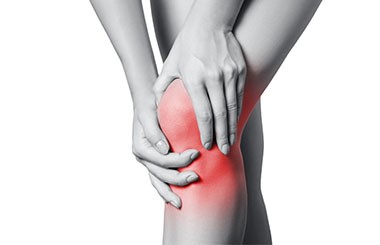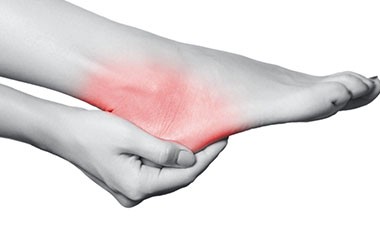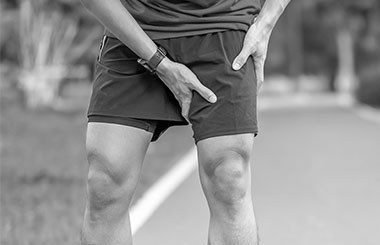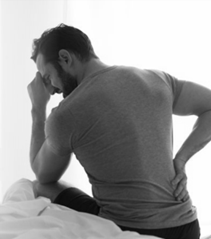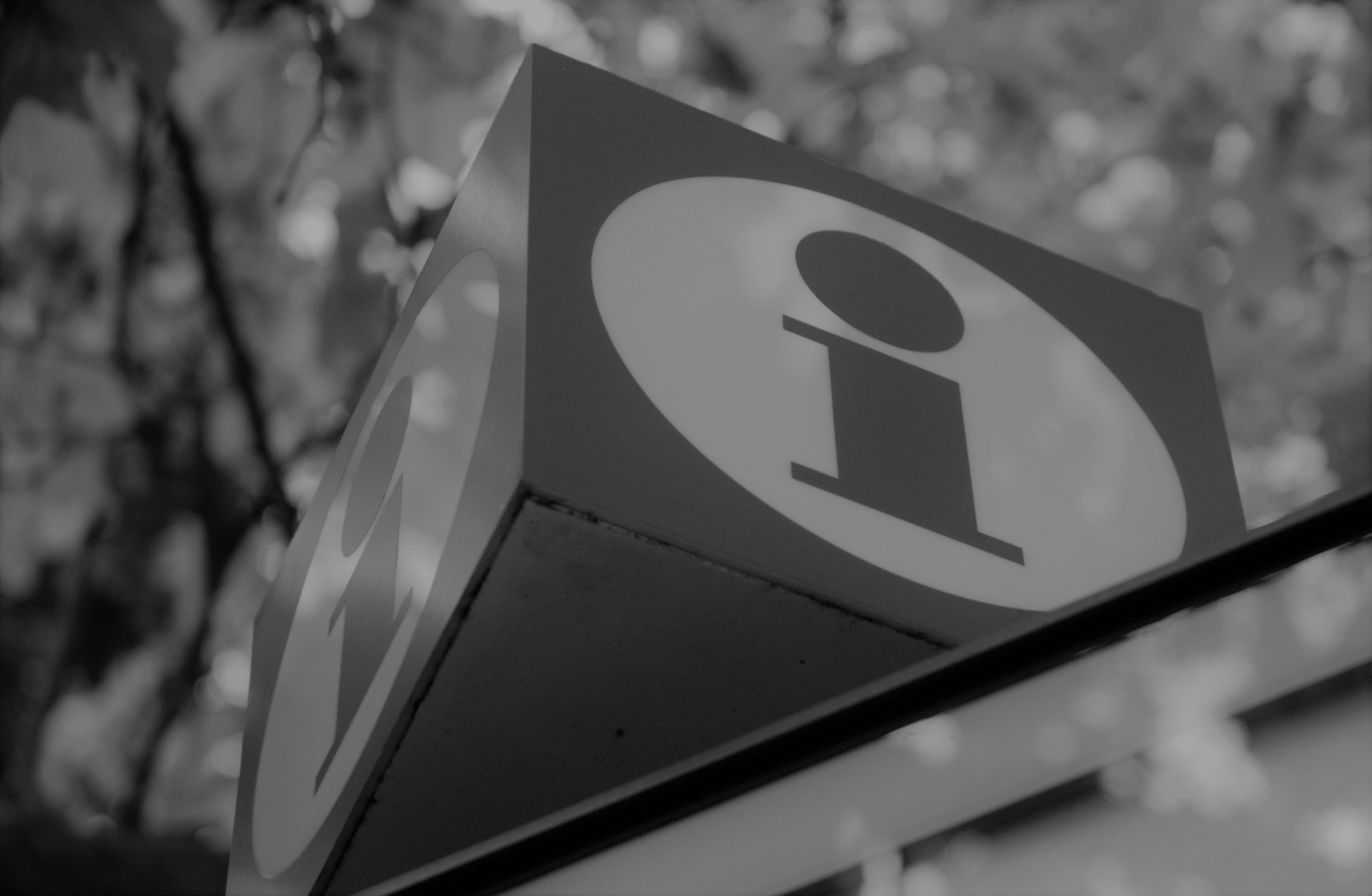What causes it?
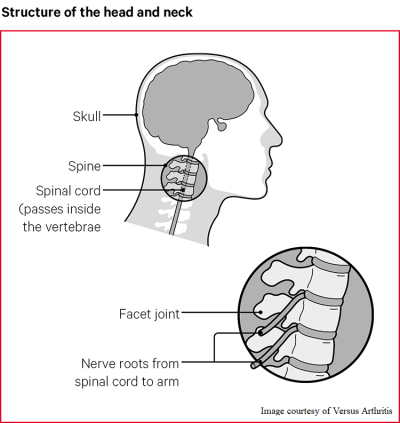
Neck problems are normally caused by an injury, accident, or normal age-related changes and lifestyle factors. These include:
- An accident or injury (e.g., following a fall or whiplash from a road traffic collision)
- Sleeping awkwardly
- Holding your neck in the same posture for too long (e.g., sitting slouched on the sofa, looking down at a laptop/mobile phone, painting and decorating)
- Worry or stress
- Having low levels of physical activity
The spine has two main functions; one is to perform and allow movement while the second is to cover and protect the spinal cord and nerves that serve the rest of the body. The many vertebrae and discs allow movement in all directions while still protecting the spinal cord.
You should see your doctor if you:
- Have pain that doesn’t show any signs of improvement, within a couple of weeks of self help
- Have pain that has rapidly deteriorated or suddenly worsened despite self help
- Have new pain, tingling, numbness or weakness in your face, arms or legs
- Suddenly develop neck stiffness along with difficultly lifting both arms above your head, particularly in the morning when you wake up
- Sudden stiffness in the neck and/or shoulders resulting in a lack of movement
- Are experiencing double vision, dizziness, nausea or sudden fainting
- Are noticing changes with your speech and/or difficulty swallowing
- Are noticing changes to your balance or walking pattern
- Are feeling clumsy or are falling more often
- Have a history of inflammatory arthritis, immuno-suppression, cancer, Tuberculosis (TB), drug abuse, AIDS or other infection
- Feel unwell, have a fever, or unexplained weight loss
- Are experiencing significant and regular changes to your usual sleeping pattern
- Have a history of recent injury (e.g. from a road traffic accident or a fall) or a history of neck surgery
- Experience a loss of feeling/pins and needles between your inner thighs or genitals
- Have numbness in or around your back passage or buttocks
- Have altered feeling when using toilet paper to wipe yourself
- Have increasing difficulty when you try to urinate
- Have increasing difficulty when you try to stop or control your flow of urine
- Loss of sensation when you pass urine
- Are leaking urine or recent need to use pads
- Can't tell when your bladder is either full or empty
- Experience the inability to stop bowel motion
- Have a change in ability to achieve an erection or ejaculate
- Experience a loss of sensation in genitals during sexual intercourse
This information is also available as a card created by the East Midlands Spinal Network. These cards are available in many different languages from the East Midlands Spinal Network website.
If you do not have any of the above, you may be able to effectively self manage your condition.
There are several ways you can help yourself including:
- Taking pain medication
- Keep active and avoid static postures/positions
- Learning how to relax (particularly your shoulder and neck muscles)
- Find a balance between rest and some activity, try not to overdo things (alter activities that make it worse so they are less painful)
- Using cold treatment, e.g. ice packs, or heat treatment, e.g. heat packs
If you have pain that doesn’t show any signs of improvement, or worsens, within a couple of weeks, consider seeking further advice from your GP/Health Care Professional.
